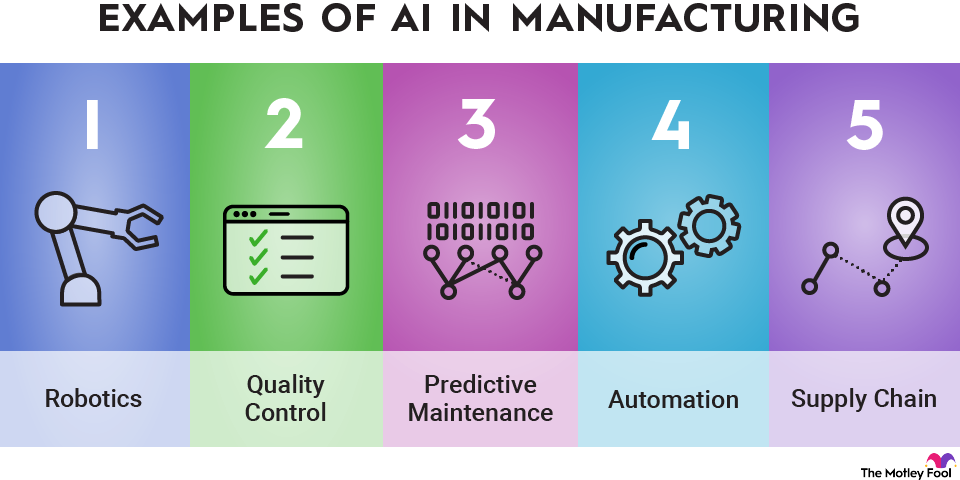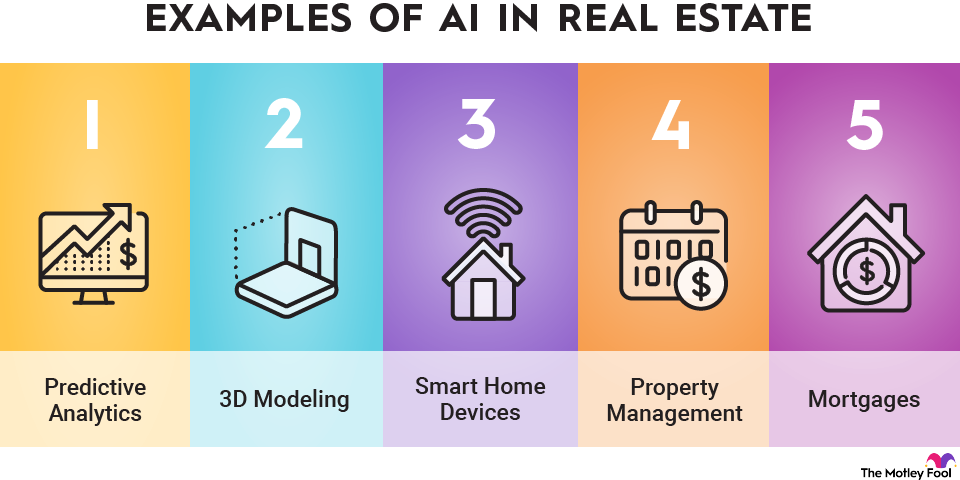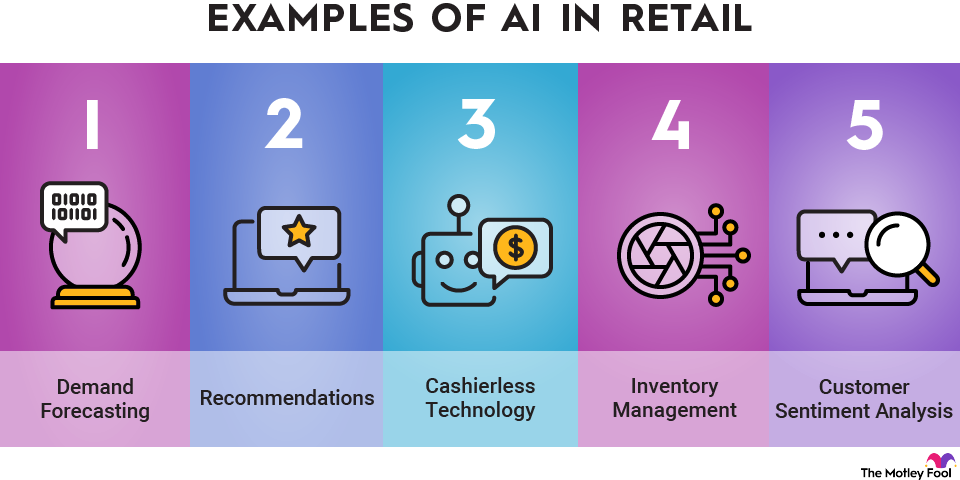Quantum stocks represent the next major breakthrough in modern technology. These systems have little in common with today's digital computers, so experts in the field could become market-beating giants in the long run.
Quantum computing technology harnesses the power of quantum mechanics, utilizing effects like superposition -- the phenomenon that occurs at the subatomic scale in which objects have no clearly defined state. It's exciting because this field of research promises to accelerate computing speed by an order of magnitude greater than what's possible today.

However, while quantum computing has made great strides in just a few years, the technology is still mostly in the research and development stage in 2025. Quantum computers are continually improving and becoming more affordable to develop, and the advent of cloud computing is making quantum technology even more accessible for researchers and software developers.
For example, in December 2024, researchers at the Google Quantum AI group demonstrated a new quantum computing chip called Willow. This chip had the strongest error correction seen to that point and performed extremely well in industry-standard benchmark tests such as the random circuit sampling (RCS) test.
The achievement inspired a quick boom in quantum computing stocks. However, the researchers also made it clear that Willow's performance was just a small step on a long road.
Quantum computing could emerge as a key technology by the end of the 2020s as its viability for cloud and AI tasks continues to develop rapidly.
However, that's a highly optimistic timeline. Many experts would rather point to the mid-2040s as the start date for truly game-changing quantum computers.
Quantum Computing
Best quantum computing stocks in 2026
There are only a few quantum computing pure-play companies. Some very tiny, high-risk businesses, like D-Wave Quantum (QBTS -4.14%) and Rigetti Computing (RGTI -5.68%), went public early in the COVID-19 pandemic. Their stocks soared in 2024 as the basic quantum computing technology took an important step forward. Further tech breakthroughs in 2025 kept the momentum going, lifting the quantum specialists to new highs in October.
A number of companies creating software for quantum computers also exist, such as security software start-up Arqit Quantum (ARQQ -2.58%) and integrated hardware and software company Quantum Computing (QUBT -2.01%). A quantum computing exchange-traded fund (ETF), Defiance Quantum ETF (QTUM +1.98%), is also available, providing broader exposure to this nascent industry.
Many larger tech businesses and semiconductor designers are also increasing their activity in the quantum realm. Here are some top companies with a hand in the actual development of quantum computers and related technologies:
1. IonQ

NYSE: IONQ
Key Data Points

NASDAQ: MSFT
Key Data Points

NASDAQ: NVDA
Key Data Points
Semiconductor
Nvidia is leveraging its software developed for GPUs to support the development of quantum computing. It has released cuQuantum, a software development kit designed to help software developers build workflows on quantum computing. The idea is to control next-generation quantum systems with a digital toolkit, simplifying the move from one computing era to another.
On the hardware side, Nvidia announced DGX Quantum in early 2023. The system pairs Nvidia's most advanced GPUs with quantum hardware developed by start-up Quantum Machines. It is made for researchers advancing quantum computing technology. Nvidia's quantum work has wide-ranging uses, from breakthroughs in jet engine efficiency to rapid drug and healthcare development.
5. Intel
6. Honeywell

NASDAQ: HON
Key Data Points

NYSE: IBM
Key Data Points

NASDAQ: RGTI
Key Data Points

NYSE: QBTS
Key Data Points
Instead of separate ions, D-Wave's (QBTS -4.14%) systems rely on superconducting loops with strong magnetic fields. These annealing circuits work together in groups, gaining pattern-finding power from the way their energy states interact with each other.
This approach still needs extreme cooling, and it's a messy system that only works under sophisticated error correction setups. But the annealing systems can also grow incredibly powerful under the right circumstances.
So D-Wave's quantum computers could outshine rival solutions for certain tasks, but it's also a more complicated technology that might turn out to be a dead end. That's saying something in an industry full of risky, complicated technologies.
And of course, D-Wave's stock is richly valued despite lackluster revenues and negative profit margins. Be careful with these financially unstable specialists, dear investor.
Pros and cons of investing in quantum computing stocks
Quantum computing is still in the early stages of development. However, plenty of research dollars are being funneled into this advanced tech.
Quantum computing could eventually augment classic computers and dramatically accelerate technological developments in industries such as healthcare, finance, and materials manufacturing. Although quantum computing pure-play stocks are scarce, investing in technology giants with quantum computing exposure could yield impressive returns in the decades ahead.
At the same time, it's tricky to pick long-term winners in this emerging field. It's a risky and volatile industry, unless you're investing in it via proven tech titans that will do just fine even if their quantum computing bets don't pay off.
Factors to consider when choosing quantum computing stocks
First, check out each company's technological approach and progress -- look for measurable improvements in qubit count, error rates, and quantum volume rather than just theoretical promises.
Second, examine their business model and revenue potential: do they have existing revenue streams from cloud services or consulting, or are they purely R&D-focused?
Third, evaluate their competitive position through partnerships with major tech companies, government contracts, and intellectual property portfolios.
Finally, consider their financial sustainability -- most quantum companies are years from actual profits, so strong cash reserves and quality investors are important.
Remember, this is a highly speculative sector where commercial applications remain largely theoretical. The winners might be established tech giants such as IBM, Alphabet, or Microsoft, rather than pure-play startups. Only invest what you can afford to lose, and view it as a long-term, high-risk bet on transformative technology. Going all-in on a volatile quantum specialist could make you a lot of money in the long run -- or go to zero over time.
Related investing topics
How to invest in quantum computing stocks
1. Open your brokerage app: Log in to your brokerage account where you handle your investments.
2. Search for the stock: Enter the ticker or company name into the search bar to bring up the stock's trading page.
3. Decide how many shares to buy: Consider your investment goals and how much of your portfolio you want to allocate to this stock.
4. Select order type: Choose between a market order to buy at the current price or a limit order to specify the maximum price you're willing to pay.
5. Submit your order: Confirm the details and submit your buy order.
6. Review your purchase: Check your portfolio to ensure your order was filled as expected and adjust your investment strategy accordingly.
























